 Dilip Mukerjea & I share a lot in common:
Dilip Mukerjea & I share a lot in common:- we are engineers by training;
- we have been globe-trotters in our own ways;
- we are voracious readers;
[That's how Catherine & I met Dilip during the mid-nineties, as we had then owned a bookstore. Dilip happened to find us by chance one day. When he stepped into our store for the first time, he was overwhelmed by all the great stuff, & subsequently, was made poorer by more than a thousand dollars! That's also why Dilip always remember Catherine.];
- we are fellow explorers in the field of creativity & innovation;
- more importantly, we like to urge corporations & professionals, to be changeable & change-ready!
The way we see it, they have two options:
- they can stand still, & wait to see what happens; or
- they can charge ahead with an eye on the future!
In reality, they can’t afford to stand still, because, as one futurist (Peter Bishop?) once said:
“Change is uncertain, but stagnation is fatal.”
In fact, Dilip Mukerjea poses a very pertinent question to drive home the urgency:
Are you killing yourself or are you skilling yourself?
We both strongly believe that, with creativity & innovation as our intellectual trampoline, so to speak, we can learn to deal with the future.
Developing change-readiness, mental flexibility, & operational agility is imperative in order for all us to stay relevant with changing times, & not to be made extinct by turbulent changes that come our way.
The two Scandinavian strategy consultants, Yves Doz & Mikko Kosonen, have brilliantly illustrated the urgency by introducing the term, "strategic agility", in their excellent book, 'Fast Strategy: How Strategic Agility will Help you Stay Ahead of the Game'.
Many years earlier, Mercer Management Consulting, through the great works of their former VPs, Adrian Slywotzky & Robert Duboff, had introduced their unique term, "strategic anticipation".
I particularly like foresight strategist & scenario planner Adam Gordon's latest fancy term: "future savvy".
Come to think of it, 'Innovate or Evaporate!' rings very true! I reckon it becomes more urgent for companies & their CEOs to move their butts, because elephants are slow to dance.
At this juncture, I like to share with readers a few selected excerpts from the book, 'Surfing the Intellect: Building Intellectual Capital for a Knowledge Economy', by Dilip Mukerjea:
"Perspectives for the New Millennium:
Are you relevant to the future or relegated to the past?
The world is changing economically, culturally, socially, politically, technologically, environmentally, and competitively.
Every individual must change in step with these world changes.
So must corporations and the human capital within them.
Unless you are prepared for all these scenarios, you are prepared for none of them. Ask yourself, are you busy preparing for a set of careers that will soon be obsolete?
We need creativity and innovation to live in a world where multiple realities have become the norm. Yet, each set of multiple realities poses a challenge, because no two people occupy the same slice of consciousness about anything.
We just do not occupy the same knowledge space, often seeking refuge in our private sanctuaries of specialisation.
Skills in creativity equip us with the capacity to succeed in the future. If we fail, it is because of a failure of imagination in the present. More than ever, you’ve got to aim for what you can’t expect to get. The marketspace of commerce has become a single global bazaar.
To be a viable player in this marketspace, we need to develop intellectual capital skills.
This means creativity, innovation, leadership, verbal and visual literacy, team play, and humanity towards one another.
Are you in the forefront of innovation, or have you receded into the white noise of your organisation’s background?
If it is the latter, consider getting outside the box so as to get inside the solution. We must integrate our diverse needs as members of today’s share of consciousness.
These are exciting times, ones that electrify a creative world where we are witness to collisions of chaos.
The Forces of Creation:
Combinations are spark plugs for creative combustion. An item by itself is a unilateral entity ~ filled with potential, but static, until it meets another. Then whoosh! Creativity!
All of us harbour forces within us. Within the vast ocean of consciousness, we have it in us to set loose a groundswell that can explode into mighty waves of unstoppable magnitude.
When we surf along these waves of human dynamism, our destination becomes inevitable. Often unplanned, serendipitously, we reach the shores of wonder. Such terrains, alive with infinite waves of potential, define the human intellect.
May the rhythm of your spirit create a song in your heart. May you never be the same!
Bureaucreative Perspectives:
Ideas are the raw material from which financial results are made.
Research exhibits the alarming fact that two-thirds of the companies listed on the inaugural Fortune 500 list in 1954 had either vanished or were no longer big enough to make the list on its fortieth anniversary. Why?
Lack of ideas to navigate through the shoals of change.
The world of ideas is emerging from the womb of creativity.
Metaphorically, it has been likened to a new tennis ball — fuzzy, but with a lot of bounce. This New World is becoming less fuzzy every day, but with a lot more bounce. Isn’t it time to knock the fuzz off the tennis ball?
"The things we fear most in organizations -- fluctuations, disturbances, imbalances -- are the primary sources of creativity." ~ Margaret J. Wheatley
Today’s corporate world is filled with executives that want someone to give them plug-and-play answers. How many such executives can you recognise in your organisation?
The future of middle management is extinction. Are the symptoms visible in your organisation? Are you becoming fossilised?
“Ideas have power by themselves. They can accumulate without travelling through an institution, and then suddenly explode.” — Michael Brown, CFO Microsoft
"The person who can combine frames of reference and draw connections between ostensibly unrelated points of view is likely to be the one who makes the creative breakthrough." — Denise Shekerjian
"Creative minds have always been known to survive any kind of bad training." — Anna Freud
Thomas Stewart writes that half of what a freshman engineering student learns is obsolete by the time she graduates; the obsolescence of electronics knowledge is so fast that techies use the phrase “Internet years” the way children say “dog years.”
Liam Fahey, a professor at Babson College and a stalwart of the Strategic Leadership Forum, likes to pose the following question: “How long will it take before half the knowledge you need in your job is obsolete?” If he poses it to a group, a third of the audience members usually say that the half-life of their knowledge is less than two years, another third that it’s less than five years.
Like money in a mattress, says Hugh Macdonald, “intellectual capital is useless unless it moves. It’s no good having some guy who is very wise and sits alone in a room.”
This is totally applicable to the world of ideas … ‘bureaucratic’ needs to make way for ‘bureau-creative’!!!
Getting results from investing in creativity requires a corporate culture that allows it to flow freely. This simply means scrapping rules that stifle new ideas."
Well, you just got to read the entire book to make yourself more creative & recreative.
As the author puts it:
"This book incorporate a spectrum of contemporary applications designed to meet today's corporate & educational needs. The vast repertoire of knowledge & techniques cater to our diverse areas of performance. We now know that our primary source of wealth lies in the development of intellectual capital. You will find the ingredients between these pages."
[For readers' information: Adrian Slywotzky wrote 'Profit Patterns: 30 Ways to Anticipate & Profit from Strategic Forces Reshaping Your Business'; Robert Duboff, 'Market Research Matters: Tools & Techniques for Aligning Your Business'; Adam Gordon, 'Future Savvy: Identifying Trends to Make Better Decisions, Manage Uncertainty, & Profit from Change '. All my personal favourites!]
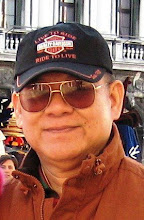



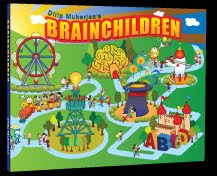



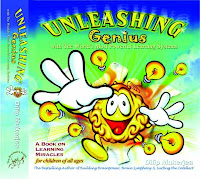
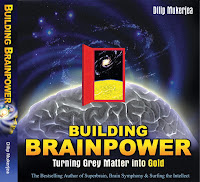
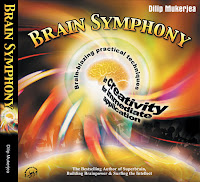





No comments:
Post a Comment